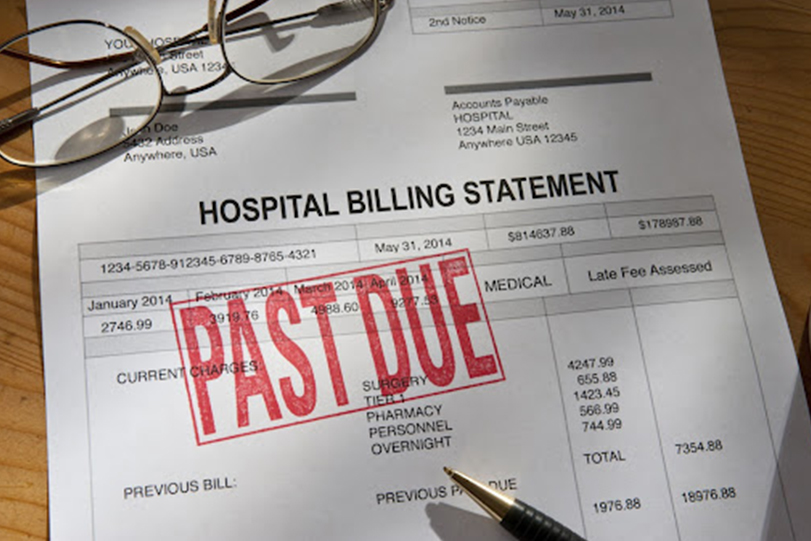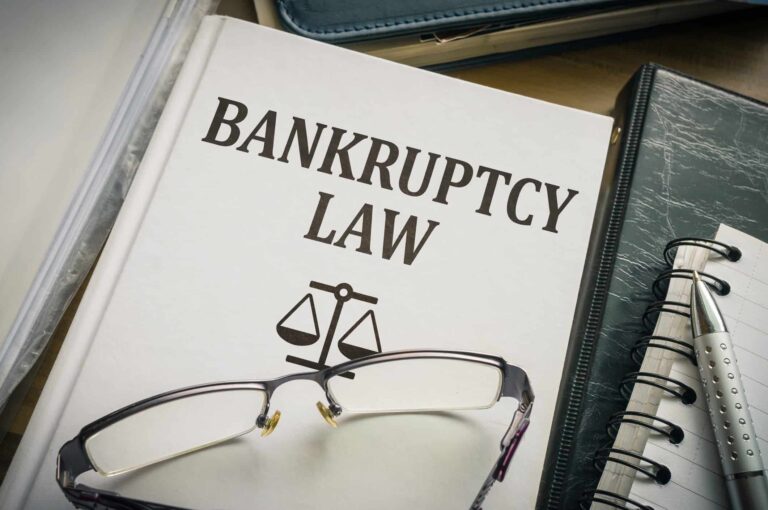Medical Bankruptcies On the Rise
Author: Nicole Bradley-Bernard

When you have health insurance, you expect that it will protect you from any significant medical expenses and cover most of the required treatment if you ever become seriously ill. Unfortunately, a study conducted by Harvard Medical School found that having health insurance did not protect a large number of patients with significant medical bills from declaring bankruptcy.
In the six-year period between 2001 and 2007, bankruptcies due to medical expenses rose by nearly 50%, going from 42% of all bankruptcies in 2001 to 62% in 2007. Contrary to the commonly held belief that most people who file for bankruptcy are poor to begin with, most people who file due to medical bills are well-educated, middle-class homeowners.
Most frightening is the fact that 78% of those surveyed did have medical insurance when they filed for bankruptcy, but still had accumulated massive medical bills due to gaps in their coverage. These gaps included alarmingly high deductibles, uncovered services, and large co-payments. To learn more and gain helpful tips for avoiding or getting out of such a situation, keep reading.
How Medical Debt is Pushing People to File for Bankruptcy

According to a 2022 nationwide survey by the Kaiser Family Foundation, over half of American adults report having gone into debt within the last five years because of medical or dental debt. The survey also found that as many as one in four adults report having dental and/or medical bills that are past due or dental/medical bills that they cannot afford to pay.
In the Harvard study, 2,314 people who filed for medical bankruptcy early in 2007 were surveyed or had their court records examined. The average out-of-pocket medical expenses totaled $17,749 for those who did have medical insurance and $26,971 among the uninsured. About 62% of those who filed had expenses of more than $5,000 or 10% of their pre-tax income, had mortgaged their home to pay medical bills, or had lost a significant amount of their income because of their illness.
Realizing the seriousness of medical debt in the United States makes it unsurprising to realize that this can quickly lead to bankruptcy. This was the case for Sherrie Foy when she had medical complications after having her colon removed to alleviate years of intestinal upset. Sherrie had a post-surgery infection that nearly took her life and cost her and her spouse $800,000 in medical debt (after what their insurance would no longer cover). When the state sued them for not paying, they had no choice but to file bankruptcy.
How Medical Bills Are Contributing to The Majority of Credit Card Debt
According to a 2019 study conducted by Lending Tree, 56% of people with a credit card have used it to pay a medical bill in the past (over half of these people are still in debt because of it). Lending Tree also found that a third of people with credit card debt found themselves in this situation because of medical bills, with one in ten owing at least $10,000. It’s not hard to imagine how this situation can quickly get out of hand and one might see no other way out than to file for bankruptcy.
If you’re struggling with how to pay off credit card debt, you can seek financial and legal advice to help you get out of debt faster.
How To Avoid Taking on High-Interest Medical Debt
While this situation can undeniably leave you feeling helpless, there are actions that could help.
If you’ve already procured medical debt, you could:
- Look into transferring the debt to a credit card with a 0% interest rate.
- Consider a personal loan to pay off credit card debt if you can get a low-interest rate.
- Contact the credit card company to see if a better annual percentage rate (APR) is possible.
To prevent future medical debt, you could:
- Talk to your medical provider(s) to negotiate medical bills, such as a payment plan with a low-interest rate.
- Consider a medical loan or personal loan if it would get you a low-interest rate.
- If you have credit cards, have someone qualified go over the terms of your contract so that you avoid worse debt from confusing policies.
How to Negotiate Medical Bills & Who to Speak To
Negotiating medical bills may be possible by contacting the billing department(s) where you owe money and trying the following:
- Ask if there are discounts available for paying upfront.
- Take thorough notes about who you spoke to, what they said, etc.
- Research the cost of care and read your bills very carefully.
- Ask if you would qualify for financial assistance. According to the National Consumer Law Center, it is mandatory for non-profit hospitals to offer financial assistance such as payment plans (with no interest) or discounted care to low-income patients.
Should I Seek Help If I May Need to File Bankruptcy for My Medical Debt?

Yes. When filing bankruptcy for medical bills, you have the option of hiring a lawyer who knows the ins and outs of bankruptcy code so that you can find debt relief and make a fresh start. Since medical debt is unsecured debt (debt without assets), it is more likely to be discharged through bankruptcy. Hiring a bankruptcy attorney in Las Vegas through DeLuca and Associates can help you understand the best options when it comes to debt consolidation, Chapter 7 bankruptcy, and Chapter 13 bankruptcy.
More and more families are struggling to pay their medical bills. If you’re one of them and would like help determining if bankruptcy could benefit you, call DeLuca and Associates today at (702) 710-2763 to schedule a free consultation. The most experienced bankruptcy lawyers in Las Vegas!
Citations:
Bosco, J. (2018). Dealing with Medical Debt: Consumer Advice from NCLC.
Cattanach, J. (2019). 1 in 3 Cardholders Are in Credit Card Debt Due to Medical Bills.
Levey, N. (2022). A Surgery Shatters Retirement Plans and Leads to Bankruptcy.
Lopes, L., et al. (2022). Health Care Debt In The U.S.: The Broad Consequences Of Medical And Dental Bills.
Tamkins, T. (2009). Medical bills prompt more than 60 percent of U.S. bankruptcies.






